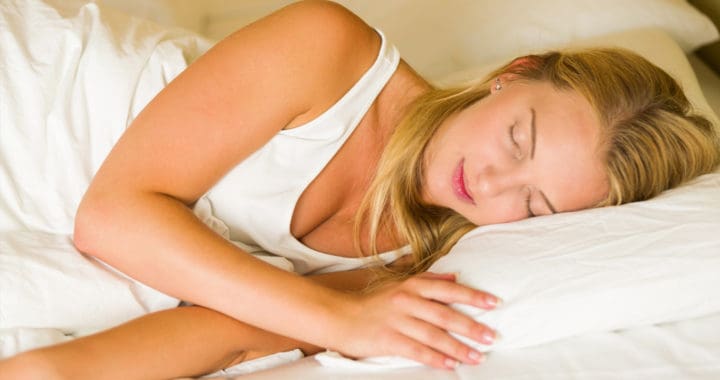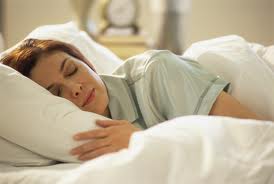Sleep is the Most Powerful Tool in Your Menopausal Toolbox
Menopause and sleep are not always easy to combine. However, good sleep is essential for a healthy menopause. Time waits for no man… or woman, for that matter. We know it every morning when we wake up and look into the mirror and wonder what happened to that twenty-year-old cutie that used to stare back at us. But would you really want to go back to those days… I wouldn’t. I like where I am now, but it wouldn’t hurt to have a little of the “cute” back. Well, one way to do that is to honor your sleep.
In this post, I am going show you that quality sleep is one of the most important things that you can do to help you lose weight, improve your skin, energize your day, and sharpen your mind. I am also going to give you the five most important things you can do to get that youth-promoting sleep.
“Wait a minute!” you say. “I sleep okay. I want more to know more elusive ways to make me feel like I did before menopause.” Okay…then answer these questions and if you answer ‘yes’ to all of them, then you can skip this post and probably teach me a thing or two. But if you answer ‘no’ to any of them, then you are not getting the restorative and youthful sleep that you need to “turn your MenoPause into MenoGo”:
- Do you usually fall asleep within ten minutes of turning out the light?
- Do you get your best sleep between 10:00 p.m. and 2:00 a.m.?
- If you wake in the middle of the night, do you go back to sleep within a few minutes?
- Do you wake up with the sun and feel refreshed and ready to go?
- Do you abstain from eating between dinner and bedtime (even something healthy)?
- Do you turn off your TV or computer/pad/smart phone within an hour of going to bed? Do you keep it out of your bedroom while you are sleeping?
- Do you sleep in a quiet, darkened room?
- Have you cured your mate from snoring or banished your pets from the bedroom so they do not wake you?
These are just a few of the things that can mess with your sleep quantity and quality. I believe that one of the most important things you can do for turning back the clock is to get great sleep.
Sleep is much more than just taking a break from the day. Every thing in nature, including the human being, follows a diurnal body clock. This clock is regulated by the day/night cycle. Every one of our 200 metabolic hormones has a relationship with this clock and is released or halted in a complex sequence that is regulated by our daily rhythms. These hormones promote fat burning (60% of our fat is burned while we sleep), stress regulation, tissue regeneration and reproductive hormone balance. Here are just a few of the ways that our lifestyle can create poor sleep:
- The appetite-regluating hormones of insulin, leptin, glucagon, and ghrelin are all influenced by sleep and can block the processes of glucose and fat metabolism – turning on fat-storage rather than fat-burning programs. When you eat after dinner, this raises your insulin, unbalancing all of the other metabolic hormones during sleep.
- Cortisol and melatonin are in an inverse relationship to each other…in other words, when cortisol (a major stress hormone) is high, melatonin (our major sleep hormone) is low. Anything that raises cortisol before sleep will reduce melatonin at the same time. Insulin also raises cortisol…so now you are wide awake and storing fat instead of burning it.
- Daylight contains the “blue light” spectrum…this blue light tells us to wake up and reduces melatonin. All computers, televisions, smart phones and pads emit blue light. When using them after dark, the brain (specifically the pineal gland) thinks it is daytime and blocks melatonin production.
- And one last fun fact…sleep is also the time that the brain detoxifies and removes the waste products created by busy brain cells. Ever wonder why you feel “fuzzy” after a poor night’s sleep…your brain didn’t get a good “scrub” during the night. Sleep is a shower for the brain!
So as you can see, your nutrition and lifestyle have profound effects on your sleep and vice versa. What can you do about this? One thing is to make sleep a priority in your life. I promised you five of the best tips for improving your sleep, here they are:
Eat three well-balanced meals during the day and no snacking, especially after dinner. This is a big topic to summarize here (my next post will be focused exclusively on “well-balanced” meals), but in general a well-balanced meal has the following attributes: real food as close to nature intended as possible, nutrient density that includes healthy protein, fat, and carbs in each meal, 500 to 700 calories per meal (I don’t want you counting calories here, I just want you to know that you need to eat enough at each meal to sustain you.) and think about making breakfast centered around protein, lunch centered around healthy fats, and dinner centered around healthy carbohydrates (Healthy carb??…fresh fruit and lots of veggies, both starchy and non-starchy).
- Create a bedtime ritual that is calming to the nervous system and the body. Modern times really messes with our primal senses that tell us it is bedtime. Lights, sights, and sounds tell us to wake up, not go to sleep. Try to be in bed by 10:00 and develop a routine that lulls you into sleep. Some ideas are: Turn off all electronics by 8:30 or 9:00, take a soothing bath or shower using either Epsom salt in the bath or spray on magnesium after the shower, soothing music, and/or read a real book (not too exciting) with a dim light.
- “Blanket” your bedroom from the world. Your bedroom should be used for two things: sleep and sex. It should be your refuge from the stressors of your day. Once you turn out the light, your room should be as dark as possible (not even an alarm clock light…I cover mine with a cloth) and as quiet as possible. Use blackout curtains and a sound machine or ear plugs if needed. One other tip…use an alarm clock that wakes you with light and a soothing sounds. This is the one I use.
- Increase your activity during the day. To promote healthy sleep, you need to be active during the day. As you will soon learn, I believe that movement needs to be regular, enjoyable, and natural…I am not a big fan of going to “the club”. Go for a walk, reduce your sitting, take the stairs, stretch or do some yoga, or garden. These activities will not be building tons of muscle or “burning off the calories”, but they will promote great sleep that will promote fat burning and give you energy.
- Realign your metabolic hormones with a small amount of melatonin before bed. As I said earlier, today’s lifestyle has made it difficult to regulate our metabolic hormones, which can mess with quality sleep. One way to kick start hormonal balance is to use melatonin at bedtime. The body naturally makes melatonin in very small amounts, so it is best to mimic that dosage. I suggest starting with .5mg and working up to no more than 2mg. Take it an hour before sleep and make sure to eliminate blue light before bed and get some natural morning light first thing in the morning.
Don’t try to do all of this at once…try one idea and give it three to seven days to see if it helps. Sometimes, a combination of these ideas will start to make a lasting change. To get more information on how to improve your sleep naturally check out this E-book by Kevin Geary, RemRehab.
Good sleep is absolutely essential to turn your Menopause into Menogo… nighty-night!

 Eat three well-balanced meals during the day and no snacking, especially after dinner. This is a big topic to summarize here (my next post will be focused exclusively on “well-balanced” meals), but in general a well-balanced meal has the following attributes: real food as close to nature intended as possible, nutrient density that includes healthy protein, fat, and carbs in each meal, 500 to 700 calories per meal (I don’t want you counting calories here, I just want you to know that you need to eat enough at each meal to sustain you.) and think about making breakfast centered around protein, lunch centered around healthy fats, and dinner centered around healthy carbohydrates (Healthy carb??…fresh fruit and lots of veggies, both starchy and non-starchy).
Eat three well-balanced meals during the day and no snacking, especially after dinner. This is a big topic to summarize here (my next post will be focused exclusively on “well-balanced” meals), but in general a well-balanced meal has the following attributes: real food as close to nature intended as possible, nutrient density that includes healthy protein, fat, and carbs in each meal, 500 to 700 calories per meal (I don’t want you counting calories here, I just want you to know that you need to eat enough at each meal to sustain you.) and think about making breakfast centered around protein, lunch centered around healthy fats, and dinner centered around healthy carbohydrates (Healthy carb??…fresh fruit and lots of veggies, both starchy and non-starchy).